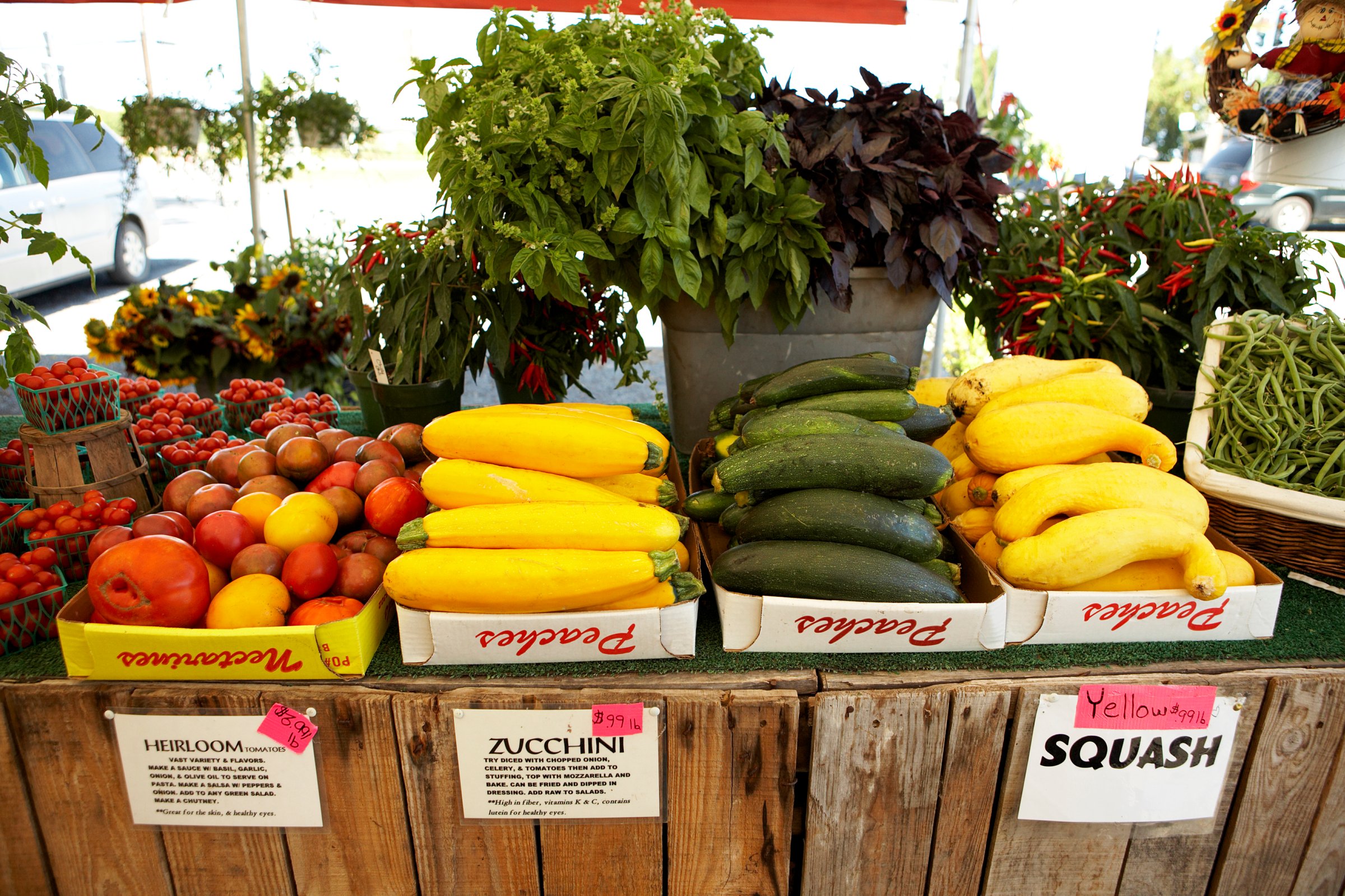
As part of the U.S. Department of Agriculture (USDA)’s Special Supplemental Nutrition Program for Women, Infants and Children (WIC), low-income moms are provided with vouchers to purchase healthy, nutritious food for their families. Farmers’ markets have become part of this program as well, in order to expand the fresh produce options that low-income families have.
But the latest study of WIC families in Illinois highlights the fact that the exact benefits of farmers’ market vouchers are hard to figure out. The latest research finds that the amounts of farmers’ market vouchers don’t contribute to a meaningful increase in fruit and vegetable intake, and that prices for produce were lower at grocery stores than at the markets. But price isn’t everything.
“Where farmers’ markets really shine is getting people more interested and having a more positive attitude about fruits and vegetables,” says Karen Chapman-Novakofski, senior author of the paper, published in the Journal of Nutrition Education and Behavior.. “Those are positive psychosocial values associated with healthy eating that we want to promote.”
And price seems to vary from place to place. In a Seattle study, products were cheaper, pound for pound, at the farmers’ markets than at grocery stores—ditto in North Carolina and California, which has the longest growing season. In the Midwest, where the current study was conducted, the decreased access to fresh produce and the shorter growing season may contribute to higher prices at the markets over the stores, which can take advantage of volume pricing.
The amount of the vouchers also may not be enough to make a difference in how much nutritional benefit the families get from the food. Most mothers come in for WIC appointments once every three months and receive two vouchers, each worth about $6. That results in about six cups of vegetables or fruits over three months. According to the USDA, children should be eating up to 2.5 or 3 cups of vegetables a day, while women should be consuming up to 2 cups daily. “Now you know why it didn’t have an impact [on their nutrition],” she says.
But Chapman-Novakofski isn’t ready to ditch the farmers’ market vouchers yet. She found that the farmers’ markets have additional benefits such as seeding more long-term healthy eating habits that could eventually lead to better nutrition. In her study, half of participants went to farmers’ markets to use their vouchers, while half did not. Those that went ended up eating a wider variety of fruits and vegetables, and were more likely to have them as snacks. The mothers also reported being more open to incorporating fresh fruits and vegetables into their daily meals, and being more confident in their ability to do so.
The fact that the prices of produce was cheaper at grocery stores in Illinois is also a lesson, she says, for WIC programs to increase the allowances for purchasing these foods at stores. In February, the USDA finalized changes to the WIC program that increased by more than 30% the dollar amount for fruit and vegetable purchases for children, to encourage families to purchase more than canned or frozen produce.
That could be especially helpful in Midwestern states with shorter growing seasons, says Chapman-Novakofski, so that eating habits begun during the summer, possibly at farmers’ markets, can continue in the winter. She is planning more research into the farmers’ market effect. “It would be nice to know what’s contributing to people going to farmers’ markets, and to replicate that during the winter months or at the grocery store.” “As a nutritionist,” she says, “I don’t care if they get fruits and vegetables at the farmers’ market or at the grocery store, as long as they get them.”
More Must-Reads from TIME
- Why Trump’s Message Worked on Latino Men
- What Trump’s Win Could Mean for Housing
- The 100 Must-Read Books of 2024
- Sleep Doctors Share the 1 Tip That’s Changed Their Lives
- Column: Let’s Bring Back Romance
- What It’s Like to Have Long COVID As a Kid
- FX’s Say Nothing Is the Must-Watch Political Thriller of 2024
- Merle Bombardieri Is Helping People Make the Baby Decision
Contact us at letters@time.com